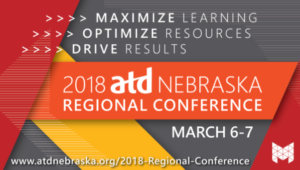Dear Training,
We’ve been partners for a long time. The two of us have been through a lot together. We brought workers up to speed on learning what they need for a new job, helped people develop lots of new skills that enhance their business acumen, and done countless other projects that have helped workers enhance their skills. We’ve had a great bond together, and a big part of me thought we would be exclusive with one another forever. I’m really sorry, but I think it’s best for both of us if we started seeing other people.
 Please try to understand, it’s not that I’m unhappy with you. It’s just that over the last few years, I’ve changed. I want different things for my life. It’s not that what we do together isn’t important – it definitely is. It’s just that I want to work on other projects, projects that you just don’t have the skill set to work on. I would expect that this doesn’t come as a complete surprise to you as you’ve likely felt me pulling away from you in recent years.
Please try to understand, it’s not that I’m unhappy with you. It’s just that over the last few years, I’ve changed. I want different things for my life. It’s not that what we do together isn’t important – it definitely is. It’s just that I want to work on other projects, projects that you just don’t have the skill set to work on. I would expect that this doesn’t come as a complete surprise to you as you’ve likely felt me pulling away from you in recent years.
Please let me explain. I’ve loved the times we’ve spent together, I really have. We’ve done some great work together, work that has gotten us recognized and earned us great respect. Our success has opened new doors for us, expanding our reach and influence, and presenting more opportunities for us to work in different settings, and with an expanded staff.
In hindsight, I think the first time I felt our relationship starting to strain was when eLearning was added to the team. That was the first time you and I were really asked to do our jobs differently. I could tell right away that you and eLearning were not collaborating well. I know you’ve been doing what you do for a long time, and you do it very well. As such, you were determined to have eLearning follow your designs and styles. eLearning came to the team with unique capabilities, but we struggled to take advantage of them because we were trying to take your skills, skills that work very well in a face-to-face workshop, and just apply them in eLearning’s world.
I take just as much responsibility in making that mistake. Like you, I was not familiar with working in eLearning’s world, so it was much more comfortable to apply what I did know into this new setting. But that was wrong, Training. Over time, I started to realize that following your processes was making eLearning completely ineffective. It wasn’t until I started learning more about eLearning’s processes that I realized how very different they are. There are things in eLearning’s world that just operate differently than things do in your world Training, and that’s OK. In order to help eLearning’s work be more effective, I needed to understand how to effectively work in that space myself.
That’s probably when we started working less with one another. Things were very awkward when I started working more with eLearning, and not just for you and I. It had been “Learning and Training” for so long that people expected one to come with the other. When I started showing up with eLearning, it made people uncomfortable. They expected to see you Training, and seeing me with someone else was an unwelcome change. Over time, as eLearning became more common and effective, people became more comfortable with seeing Learning and eLearning together.
The situation became more complicated for you as the years went on and the team continued to expand. We brought in more team members, including Performance Support, mLearning, Social, and even your cousin, Live-Online Training and others. Each new team member brought with them a new set of capabilities, able to better solve another list of specific problems. With each new team member, your world seemed to get smaller.
I’m sorry if this sounds harsh Training, but the reality is that the world has changed. Years ago you and I… Training and Learning… we were the only players on the team. If there was a problem, we stepped in to try to solve it. Things are more complex now Training, or maybe they were always more complex and we just understand them more now. You do great work Training, but you’re not a solution to all problems, especially when you factor in how disruptive your specific style is to work.
You are a specialty that should be applied only in situations that match the unique benefits of what you bring to the table.
I hope you don’t hear that as a bad thing. I know that sometimes you feel you get a bad reputation, but that’s because in the past you’ve been expected to solve problems you aren’t equipped to address. That’s not your fault. If it’s anyone’s fault, it’s mine for bringing you into those projects in the first place. For that, I’m sorry.
This may be painful now, but in time I hope you see how this is really best for you as well. This isn’t goodbye. When I have a situation that requires building of a complex or foundational skill set, I can’t imagine anyone else I’d rather call to work with. That’s your sweet spot; a place that you’re comfortable operating in because that’s where you’re most productive.
For me to be productive I can’t work exclusively in your world. I need to understand and be able to work with everyone on the team, so that I can partner with the team member, or team members, whose capabilities best match the problem I am looking to solve. And that will make all of us more effective.
I hope you understand.
-Learning
This post is inspired by a similar post I enjoyed written by Ted Coine, Dear Email, Maybe It’s Time We Saw Other People







